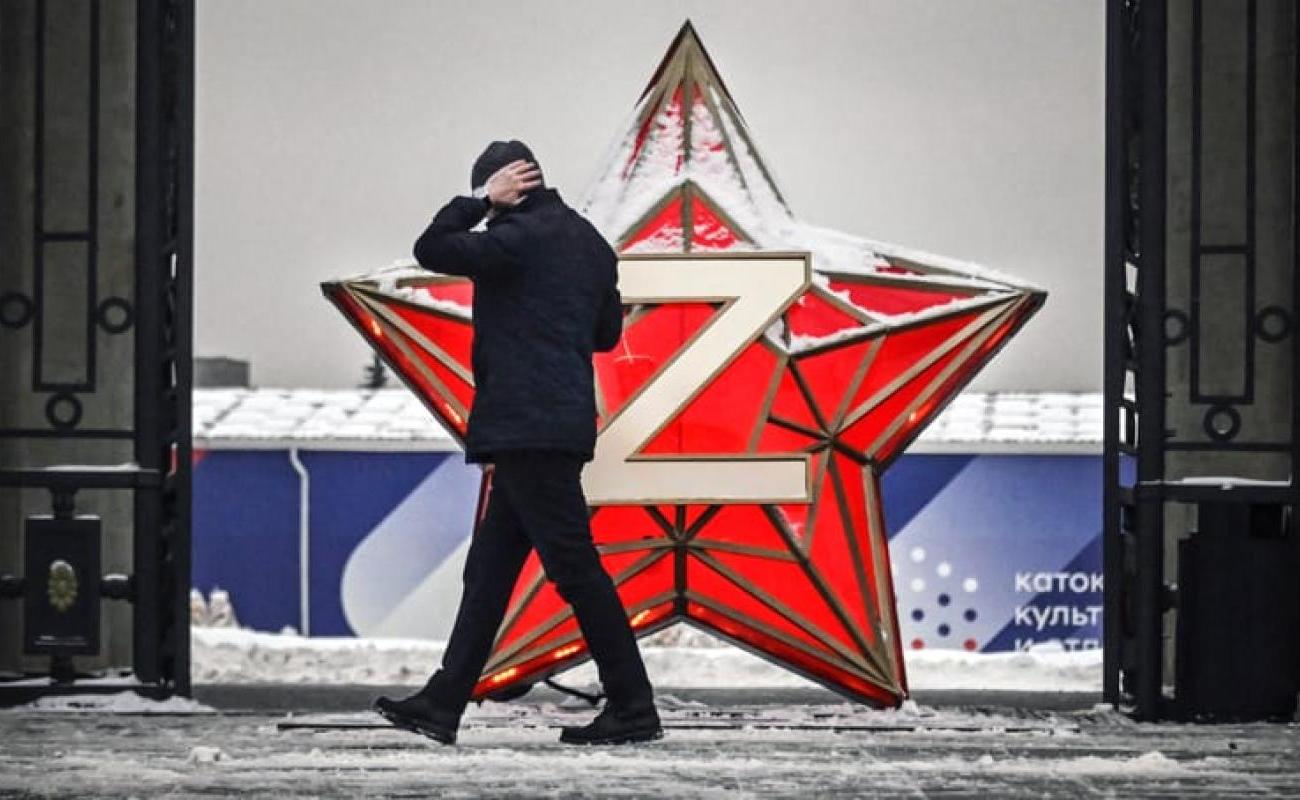Pro-war Russia enraged over military failings

There’s one thing Western and Russian military strategists agree on — crowding a large number of mainly new conscripts inside a building within range of Ukrainian missiles so that they could see in the new year was a fatal error.
“They should never have been there,” said Britain’s retired Air Vice-Marshal Sean Bell.
Reportedly, around 600 Russian troops were at the college in Makiivka when it was struck by four American-supplied HIMARS rockets on New Year’s Day. Russia says 89 soldiers were killed — the highest single battlefield loss Moscow has acknowledged since the war began — while Ukraine estimates the death toll nearer 400.
Bell and other Western military experts say the Russians laid themselves wide open to the devastating attack — and the country’s furious pro-war military bloggers and lawmakers agree.
On Telegram and other social media platforms used by these increasingly influential and bellicose critics, clamor is growing for blame to be apportioned and calls are mounting for military heads to roll.
“Our generals are untrainable in principle,” wrote Igor Girkin, a former intelligence officer and paramilitary commander who played a key role in Russia’s annexation of Crimea and the war in the Donbas.
Girkin, who uses the pseudonym Igor Strelkov, and others have been left fuming at the series of missteps that gave Ukraine the opportunity to pull off their deadliest single attack on the Russian military so far.
And not only were a large number of conscripts gathered together in one place just a dozen kilometers behind the frontlines, they were also quartered close to a massive ammunition dump, which, the bloggers say, added to the power of the blast.
“What happened at Makiivka is horrible,” wrote Archangel Spetsnaz Z, a Russian military blogger with over 700,000 subscribers to his Telegram channel. “Who came up with the idea to place personnel in large numbers in one building, where even a fool understands that even if they [are] hit with artillery, there will be many wounded or dead?”
With criticism from lawmakers and state broadcasters also mounting — including from top propagandist Margarita Simonyan, editor-in-chief of the state-controlled Russia Today — the defense ministry had little alternative but to break its initial silence on the debacle and try to manage the narrative by promising an investigation.
The effort has so far misfired, however, largely due to the ministry’s attempts to prejudge the investigation by blaming the conscripts themselves for defying a ban on using cell phones. “It is already obvious that the main reason for what happened was the large-scale use of mobile phones by the troops despite the ban,” Lt Gen. Sergei Sevryukov, deputy head of the main Military-Political Department of the Russian Armed Forces, said.
“This factor allowed the enemy to track and determine the co-ordinates of the soldiers’ location for a missile strike,” he added.
Although it’s believed that both sides have used cell phone signals for targeting purposes — possibly by Russia to strike a Ukrainian military base near Lviv and possibly by Ukraine to target a Russian general last March — some Russian critics mistrust the claim, including Semyon Pegov, a high-profile blogger who was awarded the Order of Courage by President Vladimir Putin last year.
“The story of mobiles is not very convincing,” he wrote on Telegram. “I rarely say this — but this is the case when it would probably be better to remain silent, at least until the end of the investigation. As such it looks like an outright attempt to smear the blame.”
The defense ministry’s attempt to prejudge the probe has gone down badly with many who see the original decision to gather so many soldiers in one place as the main cause of the debacle, and they say attributing blame to the soldiers is part of a bid to explain away the failings of commanders and officers.
Blaming the conscripts is also adding to skepticism that any senior commanders will be found guilty and punished — but if no one is, signs indicate that the furor will grow. For weeks now, there have been rumors of a shake-up in the higher echelons of Russia’s armed forces, with talk that the Chief of General Staff Valery Gerasimov, among others, might be replaced — something these pro-war bloggers, alongside the likes of Chechen leader Ramzan Kadyrov and paramilitary boss Yevgeny Prigozhin, have long demanded.
With frustration building and recriminations about command incompetence flying, this demand by Russia’s pro-war critics, who have been fulminating about the conduct of the war for months, are unlikely to ease up — they’re already busy highlighting other operational missteps as they see them.
For example, the pro-war blogger known as Rybar, who has over a million subscribers on Telegram, recently drew attention to the failure to distribute Russian conscripts between units that have already seen combat, so the newcomers can learn more quickly — a practice followed by the Ukrainians, who now avoid creating new units from scratch.
“It is worth, once again, referring to the experience of the Armed Forces of Ukraine, which back in April drew a conclusion from their experience of working with mobilized people: the called-up reinforcements must be ‘mixed’ with combat units that have already been tested in combat conditions,” he wrote.
And after a string of successive failures, as calls for action continue to grow, it remains to be seen whether those in command will listen.
